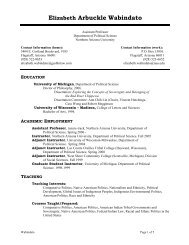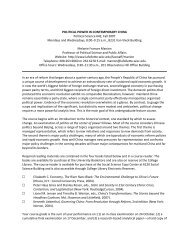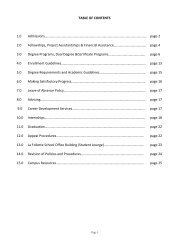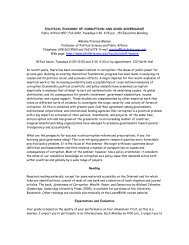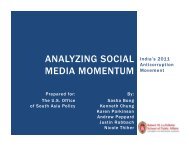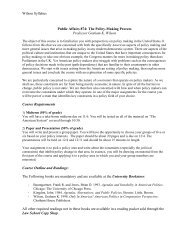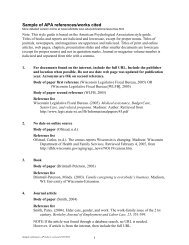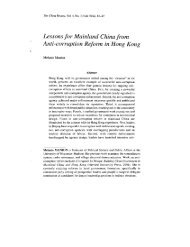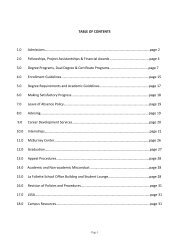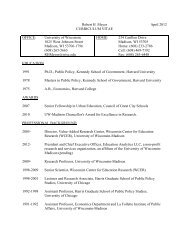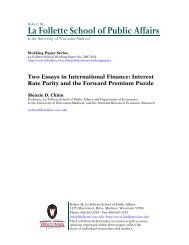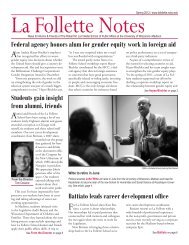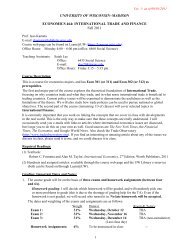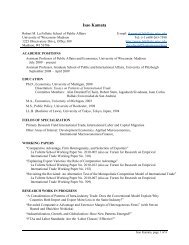SAVE Commission's findings - La Follette School of Public Affairs ...
SAVE Commission's findings - La Follette School of Public Affairs ...
SAVE Commission's findings - La Follette School of Public Affairs ...
Create successful ePaper yourself
Turn your PDF publications into a flip-book with our unique Google optimized e-Paper software.
<strong>Public</strong> employees have a unique vantage<br />
point in that they are simultaneously<br />
citizens, taxpayers and employees.<br />
During August and September<br />
1994, some 40 state employees<br />
participated in focus groups designed<br />
to identify their key issues. During<br />
October and November, state employees—all<br />
75,000 <strong>of</strong> them—were<br />
“Let the people know that state<br />
employees do work.”<br />
State employee<br />
invited to respond to a<br />
survey. By November 9,<br />
some 15,759 employees,<br />
more than 20 percent,<br />
had completed the<br />
survey. Responses continued<br />
until year-end.<br />
Their composite message about their<br />
workplace was:<br />
“We like our jobs. We don’t like the system<br />
we’re in.”<br />
<strong>Public</strong> employees want to make systems<br />
better and they have ideas on how to do it. They<br />
support streamlining operations such as personnel<br />
paperwork (78 percent), reducing layers<br />
<strong>of</strong> management (71 percent), and reducing<br />
the red tape <strong>of</strong> purchasing (69 percent).<br />
In addition to supporting streamlining,<br />
public employees are flexible. They are willing<br />
to move within their geographic location (71<br />
percent) and some are also willing to move outside<br />
their geographic location (26 percent) if<br />
the job required it. They are even open-minded<br />
about transferring to other agencies (34 percent).<br />
Not only are public employees flexible,<br />
they also want to be accountable. They support<br />
a pay system based on skill and performance<br />
(79 percent), are willing to be judged<br />
by both their peers and<br />
supervisors (52 percent)<br />
and are comfortable<br />
in having their<br />
performance reported<br />
to the taxpayers (49<br />
percent). To keep their<br />
performance sharp,<br />
they want to stay up to date. They support the<br />
idea <strong>of</strong> having a state fund for training (50 percent).<br />
In short, public employees want to be part<br />
<strong>of</strong> a successful operation and have a good idea<br />
<strong>of</strong> what a successful operation looks like. One<br />
employee put it this way:<br />
“All agencies should have a mission, vision<br />
and strategic plan. All agencies should<br />
know how to survey customers. All staff should<br />
be empowered to own their processes. We need<br />
to think <strong>of</strong> state government as a system instead<br />
<strong>of</strong> individual kingdoms. When one agency<br />
suffers, the whole state suffers.”<br />
CITIZEN • COMMUNITY • GOVERNMENT — WISCONSIN: THE 21 ST CENTURY 9



